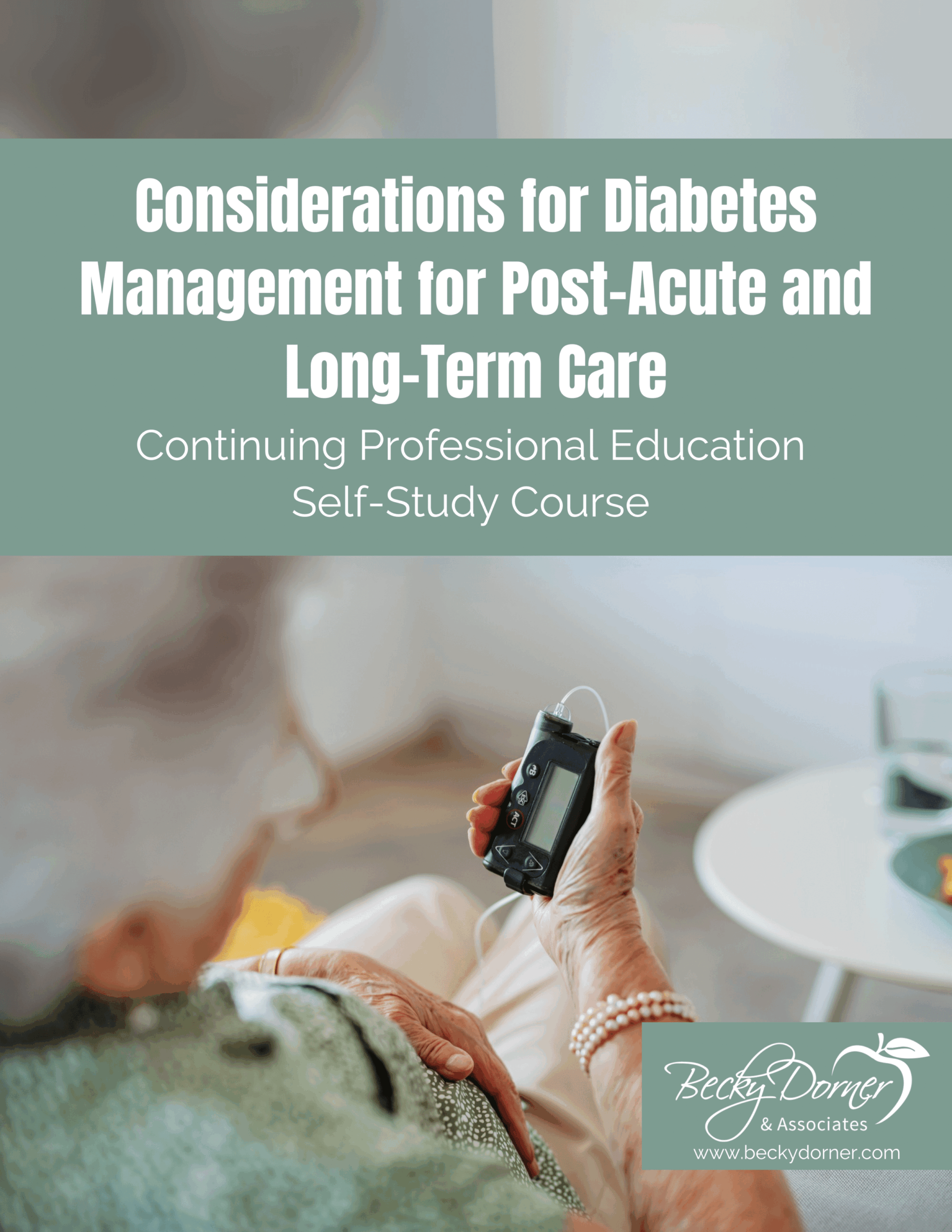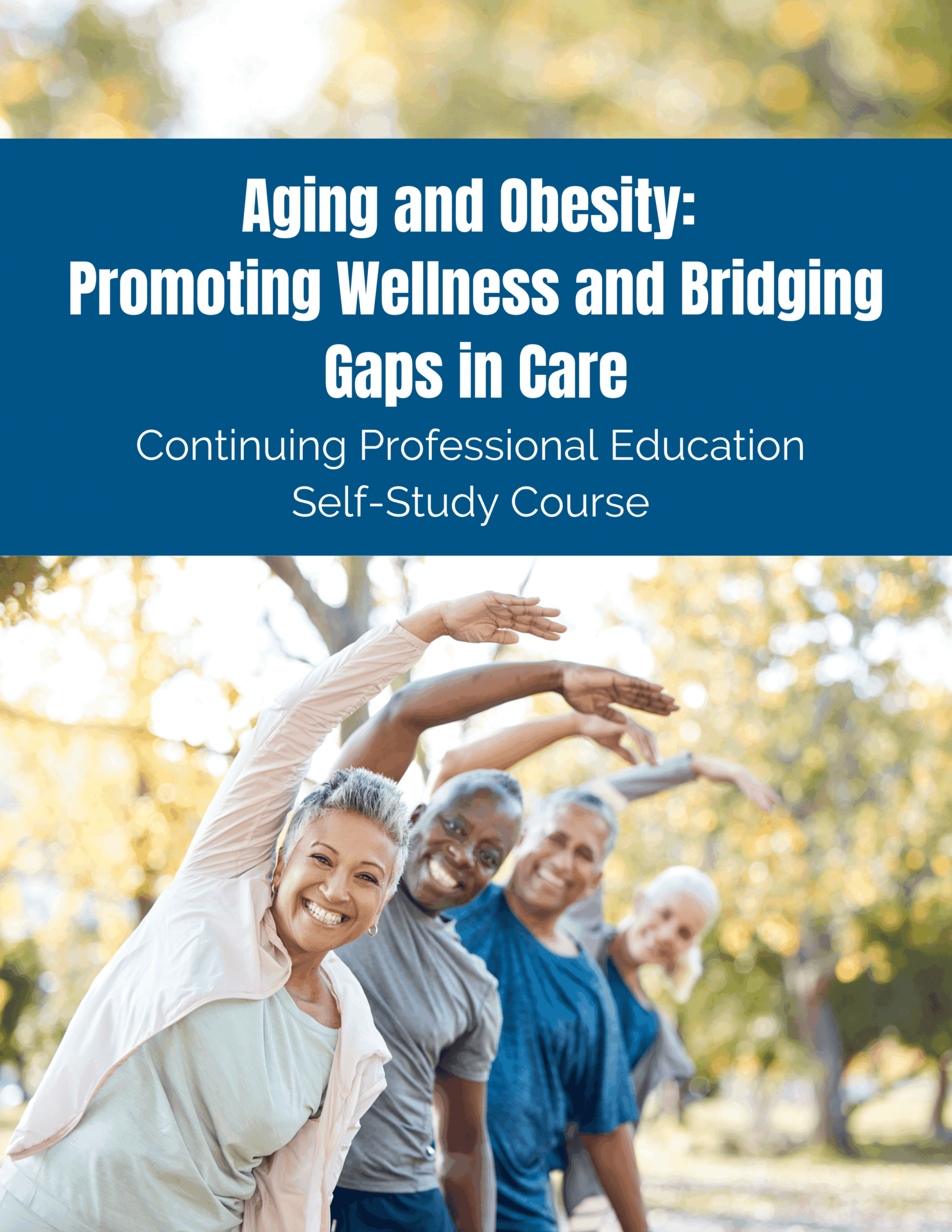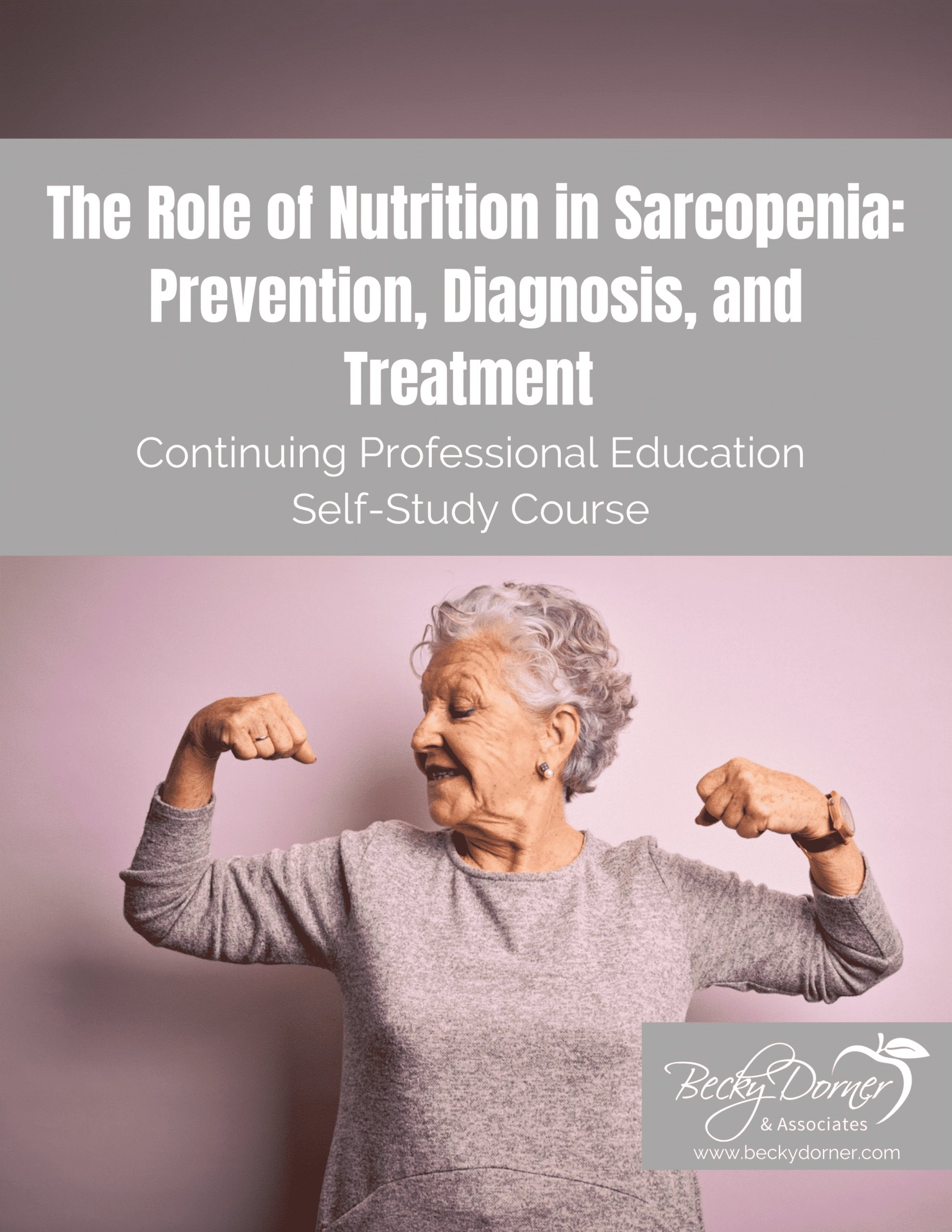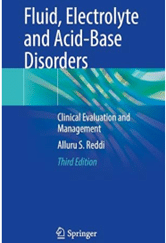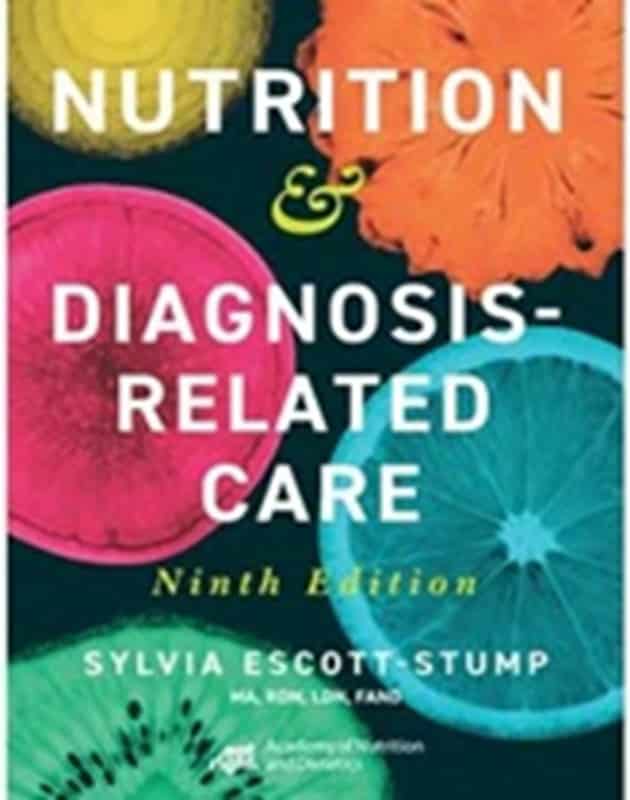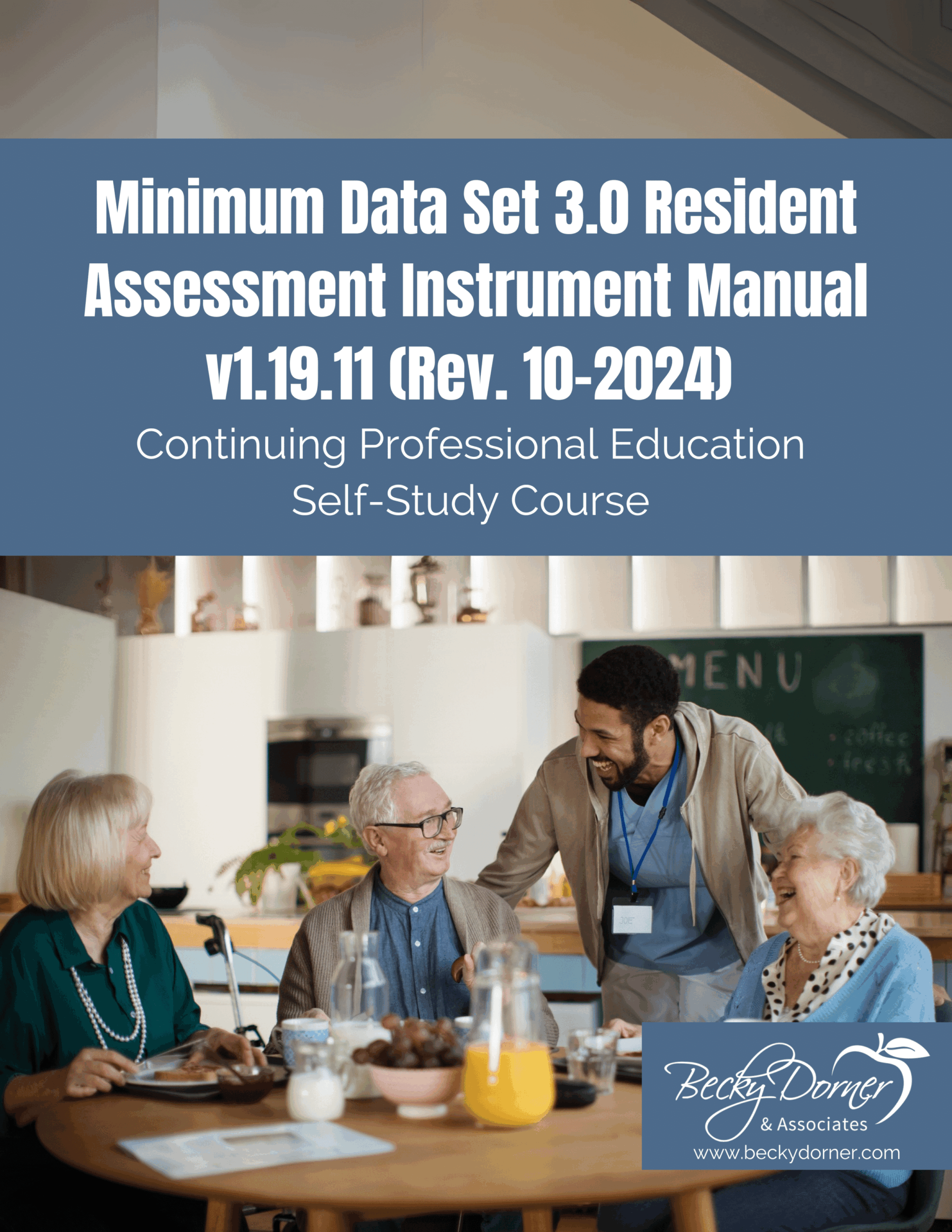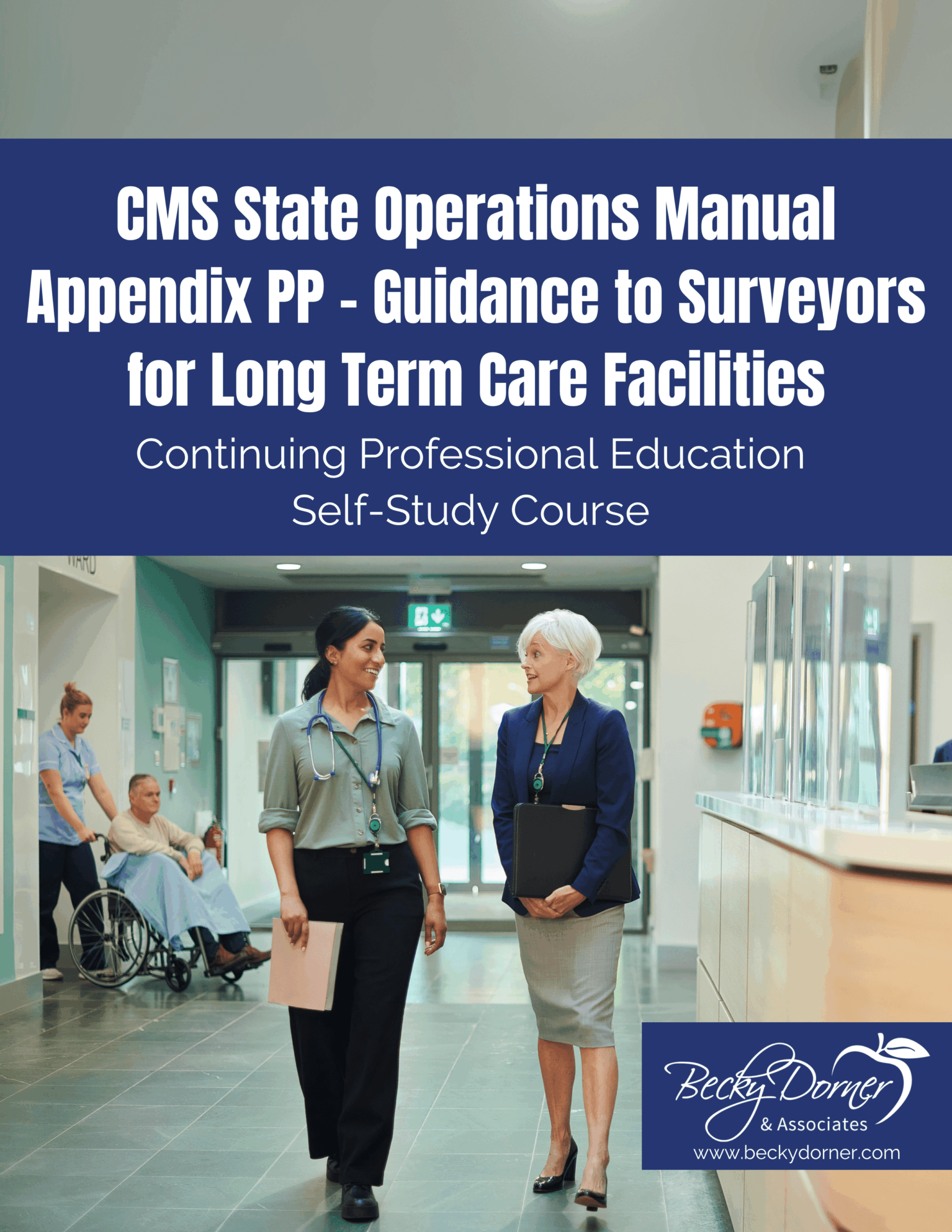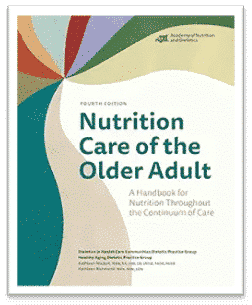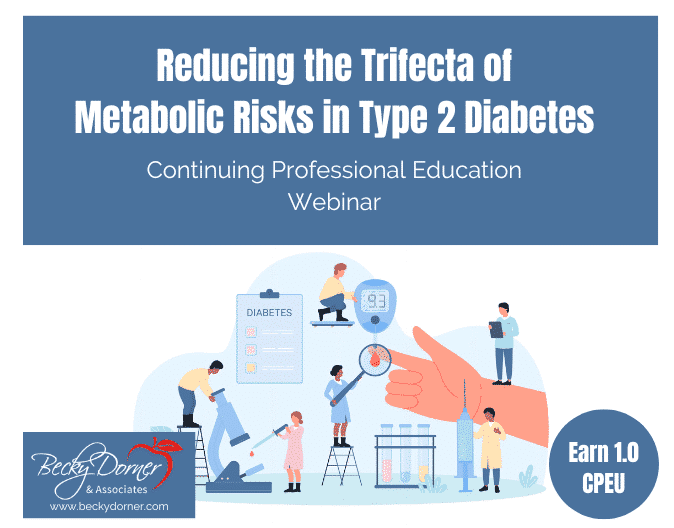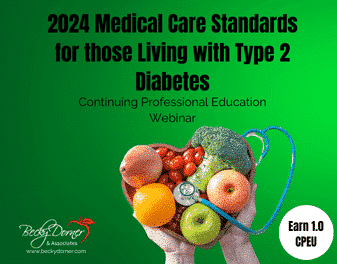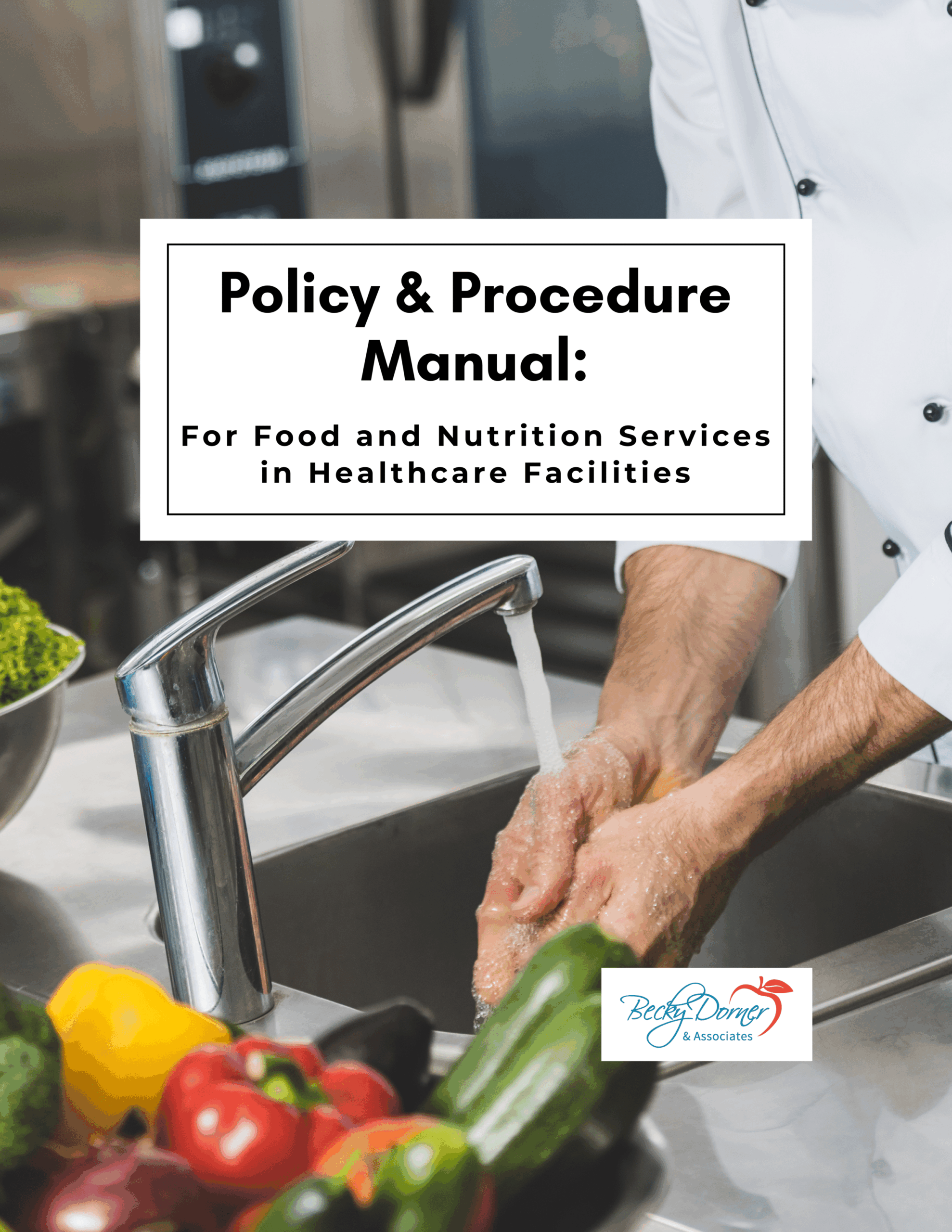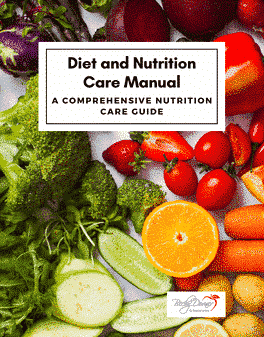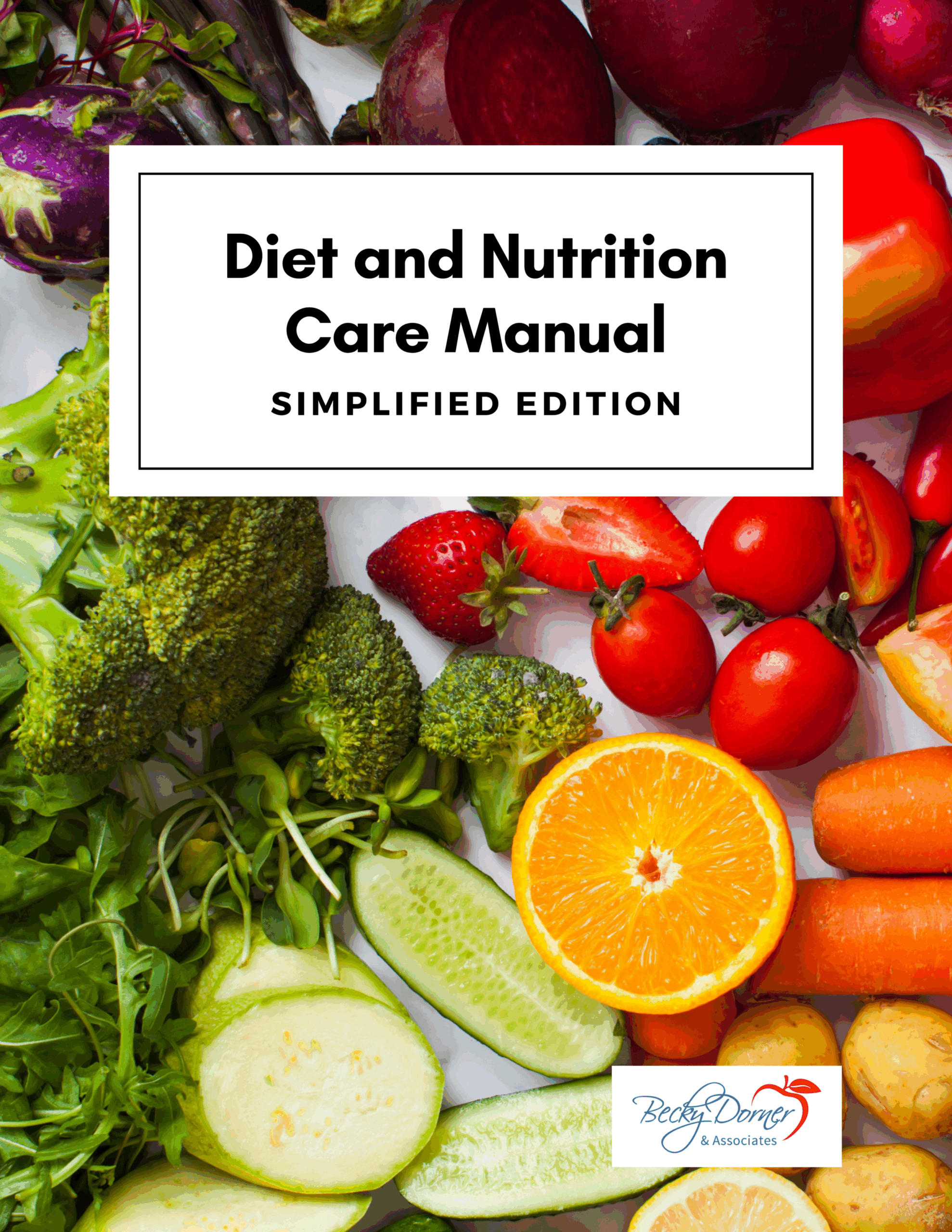Health conditions including cardiovascular disease, diabetes and osteoporosis are more prevalent among older adults, affecting their nutritional needs. Despite age-related changes and medical conditions, adopting a healthy diet and lifestyle can help older adults optimize their health, nutritional status, and quality of life.
Becky Dorner & Associates exists to inspire excellence in nutrition care through in-depth continuing education programs, current industry information and helpful resources. The educational materials on this page are intended to help nutrition professionals expand their knowledge of the nutritional needs of the aging population.

Facts & Statistics Related to Older Adult Nutrition
Let’s take a moment to understand the issues related to nutrition among older adults:
- Up to half of older adults adults are malnourished or at risk of becoming malnourished1
- Nearly 20-30% of elderly individuals suffer from anorexia, which is a major contributor of frailty2
- 12-28% of elderly people are considered frail, with the highest prevalence among women2
- 30% of individuals aged 60 years and above are sarcopenic (losing muscle mass), often caused by insufficient protein intake2
- Less than one percent of women and only 25% of men in America are able to meet calcium requirements through diet2
- Nearly 13% of older Americans age 50 and older have osteoporosis4
- Individuals over the age of 70 are most at risk for conditions related to a weakened immune system3
%
of older adults are malnourished or at risk
%
of elderly individuals suffer from anorexia
%
of individuals aged 60 years and above are sarcopenic
%
of elderly people are considered frail
%
of women in America meet dietary calcium requirements
%
of men in America meet dietary calcium requirements
%
of older Americans (ages 50+) have osteoporosis
Sources
- Academy of Nutrition and Dietetics, Adult and Senior Malnutrition. https://www.eatrightpro.org/news-center/in-practice/dietetics-in-action/adult-and-senior-malnutrition. Updated August 21, 2018. Accessed November 3, 2022.
- Kaur D, Rasane P, Singh J, Kaur S, Kumar V, Mahato DK, Dey A, Dhawan K, Kumar S. Nutritional Interventions for Elderly and Considerations for the Development of Geriatric Foods. Curr Aging Sci. 2019;12(1):15-27.
- Lawton G. You’re only as young as your immune system. New Sci. 2020 Mar 28;245(3275):44-48. doi: 10.1016/S0262-4079(20)30646-1. Epub 2020 Mar 27.
- Searing, L. The Washington Post, The Big Number: 14.1 million Americans 50 and Older Suffer Osteoporosis. https://www.washingtonpost.com/health/the-big-number-141-million-americans-50-and-older-suffer-osteoporosis/2021/04/09/7ae5f382-9885-11eb-962b-78c1d8228819_story.html. Updated April 12, 2022. Accessed November 3, 2022.
CPE Courses on Older Adult Nutrition
Webinars on Older Adult Nutrition
Featured Blog Posts on Older Adult Nutrition

Gut Health: Help Your Patients Develop a Healthy Microbiome and Manage Chronic Disease
Introduction According to the CDC, 60% of U.S. adults live with at least one chronic…Read More

The Importance of Being Regulatory Ready in Long Term Care: A Registered Dietitian Nutritionist’s Perspective
In the world of long-term care (LTC), registered dietitian nutritionists (RDNs) play a critical role…Read More
FAQs on Older Adult Nutrition
Get answers to nutrition professionals’ most frequently asked questions about older adult nutrition below!
A new patient at my facility has requested a gluten-free diet. She does not have a diagnosis of celiac disease, but her daughter insists that she needs it because it is healthier. The patient tells me that she loves bread, desserts, and snack crackers. The daughter says that her mother has mild dementia and is not making the best choices for her health. The patient is 87 years old and says, “I want to eat whatever I want”. Can you help me figure out how to work with this family?
Federal regulations require that a facility provides food that accommodates a resident’s allergies, intolerances, and preferences. Where it gets murky in this case is that the patient and daughter are not in agreement. I suggest that you try having a conversation with mother and daughter together. Discuss the risks of cutting out gluten (nutrient deficiencies, quality of life, limited food intake) and clearly ask the patient her feelings about eating gluten-free. Remind the daughter that regulations require that the facility respect the patient’s preferences and that if the resident prefers foods containing gluten, they will be provided to her. Emphasize quality of life and the pleasure the patient gets from food she enjoys. Be sure to document your conversation in the medical record. If the daughter is not satisfied, invite her to talk to your administrator.
We are still getting residents who are admitted after being hospitalized for Covid in our post-acute care facility. What are the latest recommendations for their nutrition care?
Like patients with any acute or chronic medical condition, MNT for post-Covid patients should be individualized. If the Covid case was mild, there may be no intervention needed. If it was severe, resulting in enteral nutrition, mechanical ventilation, or other invasive procedures, the patient may need more calories and/or protein to help mitigate the effects of the virus or treatments. If intake is good, they may be able to meet their needs with food alone. If not, oral nutritional supplements may be needed.
I have a patient with advanced dementia whose family has requested a GI consult for placement of a PEG tube. I know the evidence does not support using PEG tubes for advanced dementia patients, but the family is insistent. How can I make them see my perspective?
Ultimately, the decision lies with the patient’s family. You can certainly discuss the evidence and the risks and benefits of enteral nutrition in patients with advanced dementia with the family. But it sounds like they have made their decision, so it is up to you to move forward and develop a plan of nutrition care accordingly.
Is it OK to stop weighing patients who are under hospice care?
Many facilities stop weights on hospice patients to help keep them comfortable. Weight loss is usually expected as part of a patient’s decline in condition and having weights will probably not change interventions or the outcome. Some facilities and some hospice programs do require monthly weights. Check your facility protocols and make sure hospice and the patient are comfortable with stopping weights before doing so.
I have one resident that constantly complains about the food at my facility. She stops me in the hall at least once a week and comes to the kitchen door to talk to the certified dietary manager almost daily. The CDM updates her preferences frequently and is now having her choose from the two entrées provided or the always available menu (a variety of soups and sandwiches) at each meal. We are concerned that our survey team will cite us for not meeting food preferences. How should we handle this?
Based on what you have said, you are doing a good job of trying to meet this resident’s needs. It is important that you acknowledge to this resident that you know how difficult it must be for her to not have as much control as she would like over food selections. If you haven’t done so already, encourage her family to bring some favorite foods in for the resident. Include this resident in the planning of “resident’s choice” meals on your menu. To help manage potential citations, be sure that both you and the CDM document periodically in the medical record about your interactions. And talk to your care plan team about the possibility of care planning this resident for difficulty meeting her food likes and dislikes.
Can you clarify what is considered a normal BMI for older adults?
Many experts believe that the BMI parameters for a “healthy” weight (18.5-24.9) are considered too restrictive for older adults. The basis for that belief is that older adults with a higher BMI have better health and lower risk of mortality than those with lower BMIs. The parameters for a healthier BMI vary depending on the source, but somewhere between 23 and 32 is often mentioned. One recent systematic review and meta-analysis that discusses this topic suggests a BMI of 23-28 is the healthy range for older adults. (Dose-response relationship between body mass index and risks of all-cause mortality and disability among the elderly: A systematic review and meta-analysis – PubMed (nih.gov)).
I know that in recent years, recommendations have been to individualize diets for older adults with diabetes and cardiovascular disease instead of giving them strict diets. I have an 81 year old patient who is very rigid and has followed an 1,800 calorie ADA diet for at least 25 years. Her blood sugars are usually between 200 and 250 and she wants them to be lower. How can I convince her to relax and enjoy her food a bit more?
It sounds like this patient got some good advice years ago about controlling her blood sugars through dietary change. However, not only has your patient aged, but our knowledge of strict diets for diabetes has changed as well. Yes, you should give your patient permission to be less rigid with her diet. Often all it takes is to explain that at this stage in her life the long-term consequences of elevated blood sugars (as long as she is asymptomatic) are not as severe as when she was young. Often the words “you should eat what you want and enjoy your food, as long as you control your portions” are all it takes for people to be willing to be less rigid. But for some people, making a change this late in life might seem drastic and uncomfortable. So, after you have provided education to your patient, it is her right to choose how she wants to eat.
I have one physician I deal with in a skilled nursing facility that periodically writes dietary consults for weight loss on patients with a BMI over 35. What is the latest on recommending weight loss for older adults?
There are two sides to this story. Of course, for relatively healthy older adults, weight loss can be beneficial by helping to normalize blood pressure, blood lipid, and blood glucose levels. It can also improve a person’s ability to ambulate and perform their activities of daily living. But there is also the risk involved in cutting calories and protein, contributing to loss of muscle mass and possible nutrient deficiencies. And the “obesity paradox” indicates that obesity may be protective against some medical conditions in older adults. Ultimately it is up to each individual. If a patient wants to lose weight, you can help encourage it, but you should never add it to the plan of nutrition care for someone who is resistant.
Free Resources on Older Adult Nutrition and More
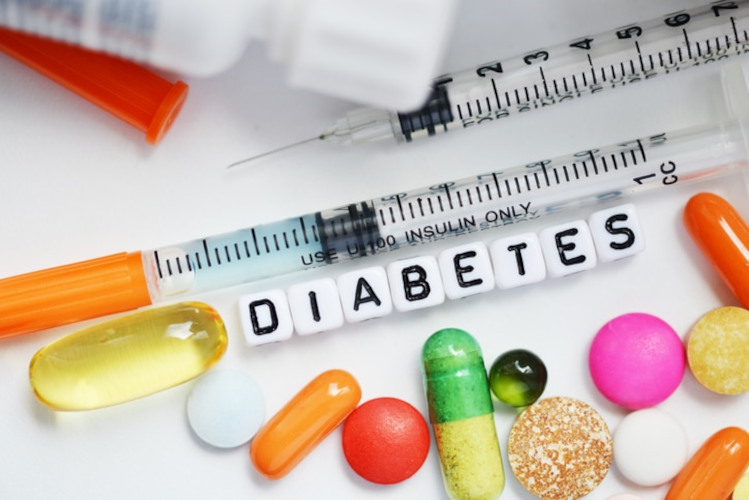
Blog
Check our blog regularly for new articles on popular nutrition care topics.

Email List
Subscribe to stay up-to-date on new products, sales, free resources and more!

Free CPEs
Access free CPE courses and webinars to take your career to the next leve
The Essentials for Every Nutrition Professional
Browse Resources by Topic
Did you know you can now browse courses, webinars and other resources on our website by topic (in addition to Older Adult Nutrition)? We will be adding more topics soon!

Cardiovascular Health

Diabetes

Dysphagia

Malnutrition
Request a Resource on Older Adult Nutrition
Interested in learning more about older adult nutrition but don’t see the specific topic here? We’d love to get ideas for new resource creation! Submit the form below to tell us what we’re missing.
"*" indicates required fields

